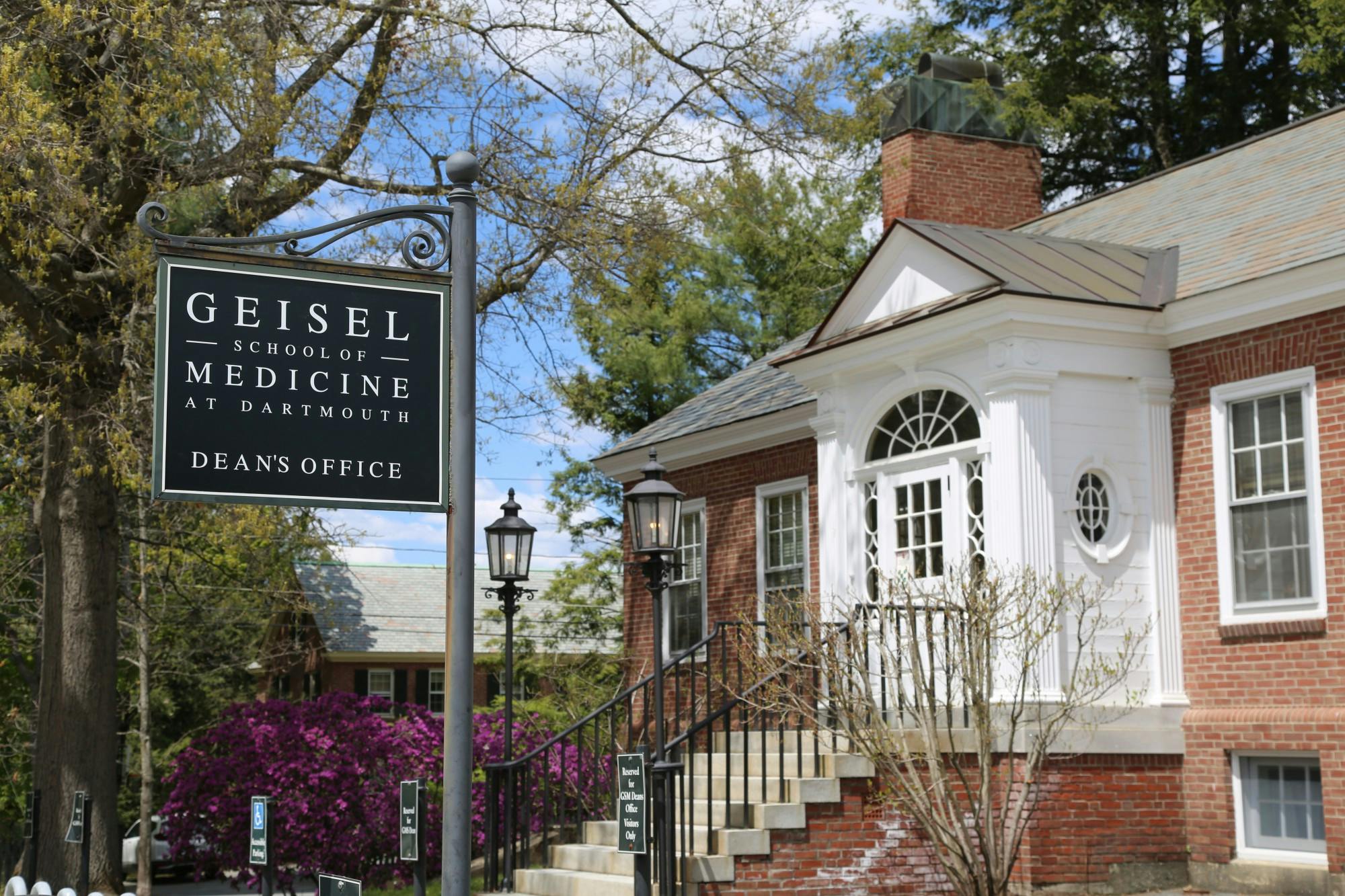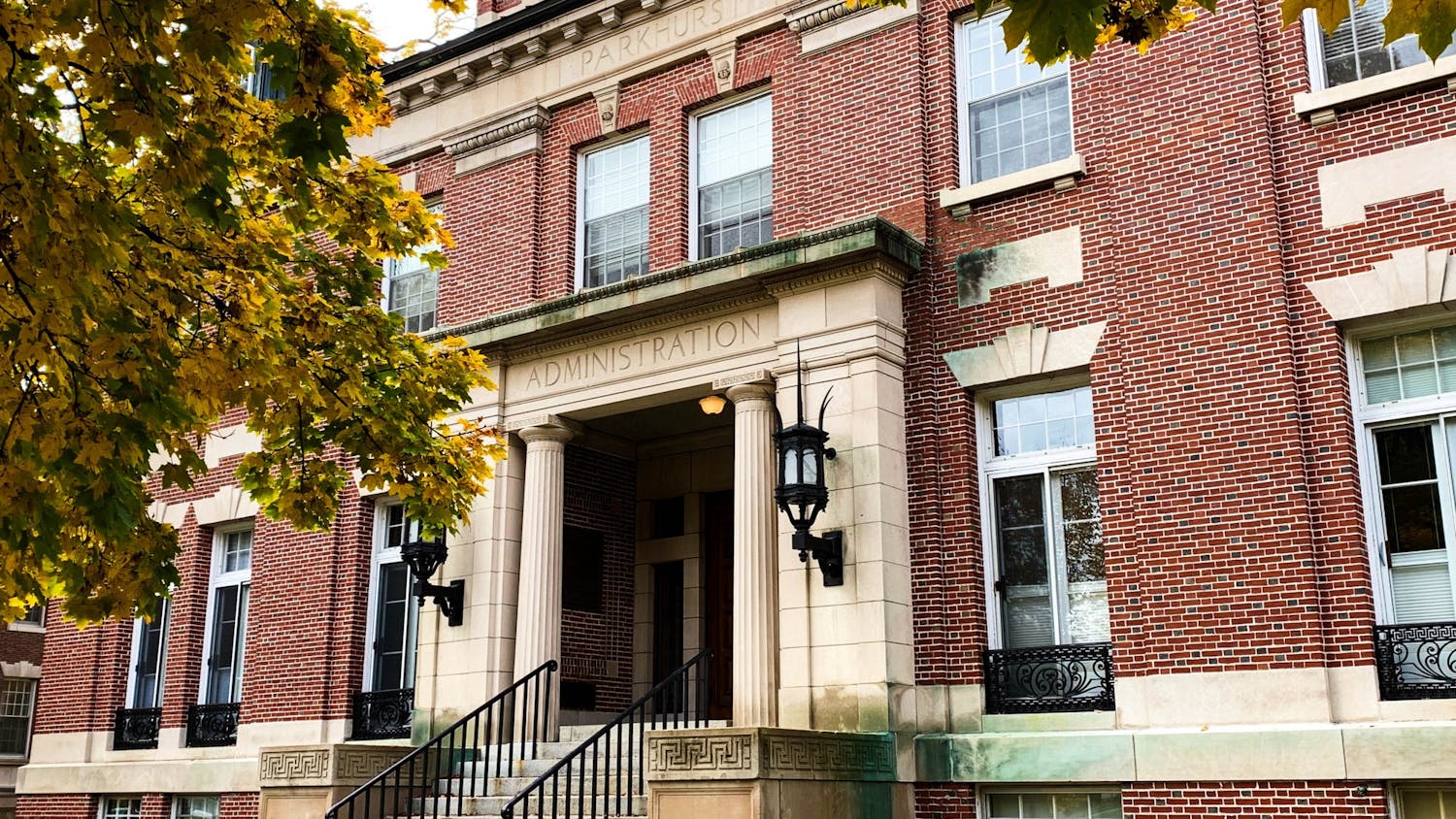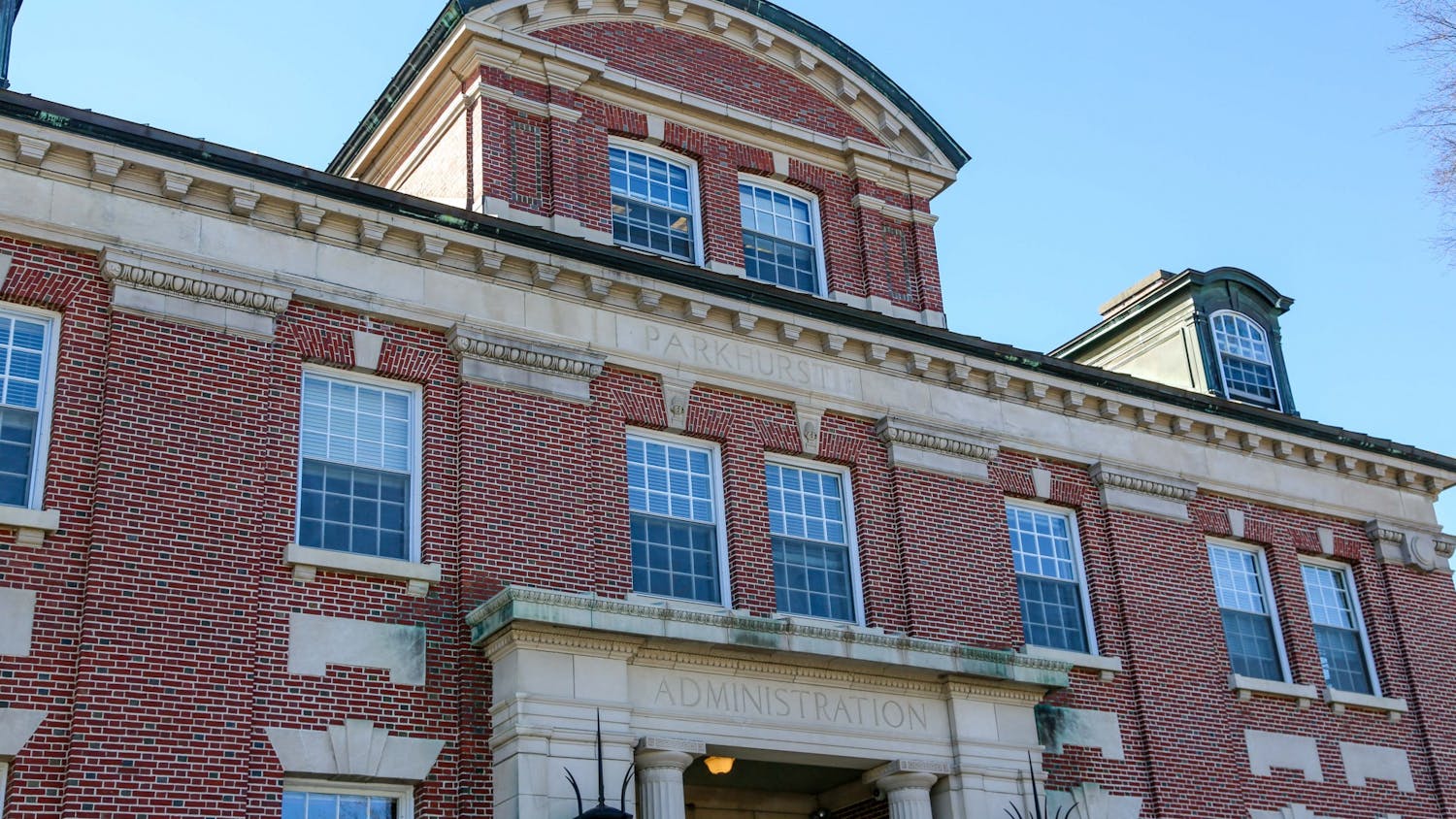In mid-March, an alarming email arrived in the inboxes of 17 students at the Geisel School of Medicine: The school had found evidence of the students cheating, the message alleged. The accused students were to attend a hearing, and if found guilty, they could be suspended or expelled.
One of the students summed up their reaction to the email in one word: “terrified.”
“I couldn’t even wrap my mind around it,” they said. “It was just the most shocking, devastating thing to see.”
The student, who requested anonymity due to fear of retribution from Geisel, has spent the past two months entangled in a battle against the Geisel administration over what they contend was a wrongful accusation.
In Geisel’s attempt to crack down on academic misconduct across its online examinations, the accused students claim that the school moved too hastily to sanction them based on misinterpreted data. Namely, they have criticized Geisel’s reliance on data from the College’s online course management system, Canvas, which multiple technology experts say can generate activity even when not in use and thus can produce an inaccurate picture of student engagement on the site.
Of the 17 students originally accused, Geisel has expelled three and suspended at least three more. Seven had their cases dismissed. The remaining students have faced course failures, marks of unprofessional conduct on their transcripts and the prospect of repeating a year of medical school. The stains on their academic records threaten to permanently derail their careers in medicine.
Students say that Geisel denied them a fair hearing process, providing them with incomplete data logs that allegedly evidenced their misconduct and giving them less than 48 hours to procure evidence exonerating themselves. Some say they were told to confess to cheating in order to avoid harsher punishments.
“It’s just been so dehumanizing,” said one Geisel student, who is currently in the process of appealing the sanctions against them.
In an interview with The New York Times, Geisel dean Dr. Duane Compton denied that the school advised students to confess and defended the school’s adjudication process as fair and valid.
The monthslong saga has called into question the fairness of Geisel’s adjudication process for academic misconduct, the strength of its free speech policies and the appropriate methods to monitor remote examinations. The medical school maintains that the case boils down to a procedural matter of enforcing academic integrity. Meanwhile, students contend that Geisel has breached their trust by using faulty data to impose harsh, potentially career-ending sanctions on students following an investigation that failed to afford them due process.
As students continue to appeal the decisions, advocacy groups now involved in the case worry that the situation unfolding at Geisel could set a dangerous precedent as universities continue to grapple with the ethical dilemmas posed by digital surveillance in the era of remote learning.
“The process has been horrendously unfair,” said Alex Morey, program officer of the Foundation for Individual Rights in Education’s Individual Rights Defense Program, which has lobbied on behalf of the accused students for Geisel to revisit its disciplinary procedures. “The bottom line is that private schools need to keep their promises and make sure that students accused of misconduct receive basic fairness when they’re threatened with being punished or expelled from school.”
Multiple College administrators, as well as the College’s Office of Communications, did not return several requests for comment.
Geisel’s investigation: A timeline
Concerns of academic misconduct date back to late January, when a Geisel faculty member first alerted administrators to student activity on Canvas at the same time as an online examination. According to an open letter by a group of Geisel students, the report prompted the IT team at Geisel to retroactively analyze first- and second-year students’ Canvas log data for the full 2020-2021 academic year.
In an interview with The New York Times, senior director of information security Sean McNamara said the team developed a system that pinpointed “very clear” instances of students accessing relevant course materials on Canvas during exams. The investigation turned up with nearly 40 potential cheating cases, many of which were immediately dismissed because a professor had allowed students to consult Canvas during one of the examinations analyzed.
Geisel’s Committee on Student Performance and Conduct, a group of 10 voting faculty members, a non-voting faculty chair and two student members, oversaw the remaining 17 academic integrity cases. On March 16, the CSPC sent the students emails containing timestamps, the names of the Canvas pages on which activity was detected and the test questions for which the students had allegedly accessed information.
Students said that the CSPC gave them less than two days to submit evidence for their cases and that they were expected to appear before the committee within as little as five days after receiving CSPC’s email.
Ahead of their meetings, students reported being counseled that if they confessed to cheating, “things would go well” for them. One student recounted being told in a meeting with a dean from Geisel’s Office of Student Affairs that expressing remorse for cheating would lead to a less severe punishment than if they were to try fighting the allegations.
Compton denied in an interview with The New York Times that the office provided such advice.
According to the Geisel students’ open letter and interviewed students, the majority of accused individuals were granted fewer than two minutes to make their case before the CPSC, and committee members did not ask follow-up questions.
As the students awaited the CSPC’s verdicts, Compton assured students in an April 5 town hall that the CSPC was “carefully” evaluating each case on an individual basis. He also said that he was open to an independent party reviewing the investigation, although the school would need to “think carefully about the structure of that and what the purview of an independent party would [be].”
On April 16, 10 of the accused students received sanctions either expelling them, suspending them or failing them in courses, depending on the number of test questions and exams in which there was found to be Canvas activity. Of the cases that were dismissed, several students had solicited lawyers or technology experts to contest the accusations.
Those who face sanctions were given a deadline of April 23 to submit an appeal, according to the Valley News. Students say the CSPC plans to schedule hearings in the next four weeks.
According to The New York Times, Compton sent an email to students and faculty in late April apologizing for the investigation’s contributions “to the already high levels of stress and alienation” during the pandemic and noted that the school is revising its procedures. At the same time, he maintained in his interview with the Times that Geisel conducted its investigation fairly.
Compton and Dr. Julie Kim, the chair of the CSPC, could not be reached for comment by The Dartmouth.
A campus divided
As the appeals process for the accused students draws onward, Geisel’s close-knit body of 534 students has been shaken. One accused student described the investigation as a “massive, painful witch hunt.”
In Geisel’s April 5 town hall, Compton acknowledged that the investigation had generated “a great amount of distrust from the students with respect to the administration” and said he sought to restore this trust.
However, many students remain fearful of speaking out against Geisel administrators. The now-defunct Instagram account @concernedstudent1797, which emerged last summer as a platform for Geisel students to anonymously document their experiences with racism at the school, abruptly shut down after making several posts in early April criticizing the administration for their handling of the investigation. According to screenshots of posts obtained by The Dartmouth, students detailed the investigation’s detrimental impacts on their mental health.
“Every time I hear how hard this is for the CSPC, I think about the panic attacks I’ve had, the 15 lbs I’ve lost, the 2 hours of sleep I get each night, the studying I’m too tired and anxious to do and the inability to silence my fear of a school I used to love,” read one post.
The account’s termination coincided with Geisel informing students of a new social media policy, which cautioned students that “‘anonymous’ posts may still be traced back to the original author” and stated that “disparaging other members of the Geisel [Undergraduate Medical Education] community will trigger disciplinary review.” The policy lists April 5 as the date it went into effect, though students claim they were not alerted to it until April 7, according to FIRE. Within that window, the account had made several posts criticizing the CSPC, student affairs office, Compton and other members of the Geisel administration, according to metadata from the screenshots.
According to Morey, the representative from FIRE who has worked with students throughout the case, students alerted FIRE to the account’s sudden removal after the organization had already begun looking into Geisel over concerns about due process. She said the account’s disappearance spoke to a “chilling effect” that often accompanies policies targeting free speech.
On April 21, roughly 60 students gathered outside Compton’s office to protest the administration’s actions, according to the Valley News. Additionally, in an open letter, 166 Geisel students called on the administration to grant each accused student a full hearing and to disregard any confessions previously given by the students.
“This process has been intentionally isolating, alienating and has gaslit innumerable people,” the letter read.
According to a campus climate survey released on Thursday, which was conducted over a span of two days in the week of May 9 by Geisel’s Medical Education Committee, a faculty- and student-run body, nearly three-quarters of the 208 surveyed students expressed distrust in the administration, and over 90% of students indicated dissatisfaction with Geisel’s communication throughout the investigation. Only 3% of respondents said they believed Geisel had been “led effectively” through the CSPC’s investigations, and only 6% of students expressed trust in the CSPC’s capacity to adjudicate fairly.
Questioning the data
A key criticism of Geisel’s investigation hinges on the school’s methodologies. Experts have challenged the use of Canvas, which was designed as a learning management system rather than a proctorial software, to monitor student activity during exams.
Multiple students reported that the accusations against them would have been logistically infeasible. In some cases, students say the allegations required them to navigate to the relevant course pages and access materials within a matter of seconds or open multiple files simultaneously. In other instances, they say the school charged the students with cheating based upon Canvas data that suggested they had accessed resources unrelated to the test questions.
The Electronic Frontier Foundation, a digital rights group, conducted an analysis of the data used to charge the students. It found that any device logged into Canvas continues to ping the system through automatic syncing — a web development technique also known as AJAX — regardless of whether the student was actively using the device. In a March 30 letter to Compton, EFF concluded that Dartmouth’s charges against students were based on “false positives” and “faulty technical evidence.”
EFF also noted that in Canvas’s own documentation, it states that data from its server logs are intended to be used for “analysis in the aggregate, not in isolation for auditing or other high-stakes analysis involving examining single users or small samples.”
A review administered by The New York Times of the medical school’s technical materials similarly indicated that Canvas’s software code automatically produces activity data even when left idle, potentially leading Geisel’s IT team to erroneously interpret the code as a sign of cheating, according to the paper’s investigation.
One of the accused students, who also requested anonymity due to fear of reprisal, said they were able to get their case dismissed after providing analysis from a cybersecurity expert showing their Canvas data indicated a nonsensical and impossible pattern of activity.
Dartmouth’s Information, Technology and Consulting department and Instructure, the company that runs Canvas, did not respond to multiple requests for comment.
Investigation raises alarm on due process, equity
Given the brief adjudication process and the challenges levied against the school’s use of online data, many students said they felt blindsided when they received their sanctions. The severity of the punishments, which one student described as “cruel and insane,” have jeopardized their careers.
“You don’t come back from a suspension from medical school,” one student said. “It’s just a death sentence.”
When FIRE first became involved in the case in late March, Morey said she was struck by the lack of “basic procedural safeguards” in Geisel’s investigation process. Namely, she had heard from students about the short window in which they were expected to produce evidence to support their cases and the brief hearing they were granted. FIRE has since called for Geisel to rectify its “failure to provide students with a meaningful presumption of innocence,” as well as to allow students ample time to prepare a defense and access relevant evidence as part of their adjudication process. The group has also requested that Geisel reverse the sanctions already imposed upon the accused students.
“The reason that we have these protections is to guard against capricious decisions that can ruin people’s lives,” Morey said.
FIRE’s letter, sent to Compton on Wednesday, further noted that Geisel appears to have recently locked its academic misconduct policies under password-protected links accessible only to people with Dartmouth NetIDs.
Additionally, the school’s adjudication process has raised questions over equity. While certain students were able to get their cases dismissed through the aid of outside resources, others were not as fortunate.
“Other people didn’t know to fight,” one accused student said.
They recounted that some students did not hire lawyers because they trusted the school to reach a “reasonable conclusion” in light of the CSPC dismissing certain cases early on, and other students lacked the financial means to hire legal aid. Another student similarly observed that there appeared to be a correlation between the resources students had on hand and whether or not their case was dismissed.
Morey panned the administration’s response as a “short-term solution” that has eroded the long-term trust of its students.
“We see, frequently, many institutions having these knee-jerk reactions to speech or conduct that they think might harm the brand or harm the university,” Morey said. “It’s a lot easier when somebody is accused of cheating to just say, ‘Get them out. Let’s wash our hands and expel them.’ … Routinely we are seeing students’ well-being [and] fairness to students pushed aside for these more business-like concerns.”
FIRE has given Geisel a deadline of May 21 to respond to the concerns raised in their letter.
A waiting game
With students who filed appeals awaiting their next hearing in the coming month, members of the Geisel community hope that the investigation is nearing its conclusion. In the meantime, the accused students, now entering their third month of fighting against the medical school’s allegations, continue to grapple with the investigation’s emotional toll.
“The hardest thing for me has been feeling so discarded by the administration,” said one student awaiting their hearing.
Meanwhile, Geisel appears to have already begun revising some of its policies. According to new guidelines obtained by The New York Times, Geisel has required students to log out of Canvas on all their devices prior to examinations. Compton also stated in the April 5 town hall that once the school transitions out of remote classes, it will no longer rely on Canvas to track student activity.
However, students’ trust in the medical school will likely be harder to restore. One student summarized that Geisel’s investigation seems to have defied the very principles they had been taught at the school.
“In medicine, you never do unnecessary scans. You’ll always find false positives that way,” they said. “They looked at 3,000 exams, found false positives, threatened them with the worst sanctions and then enforced them.”
Elizabeth Janowski '21 is the news executive editor of the 177th directorate. Hailing from Brookfield, Wisconsin, she is pursuing a double major in history and film and media studies.




